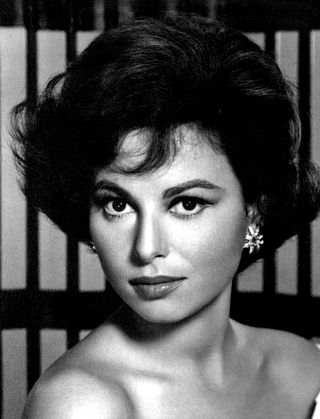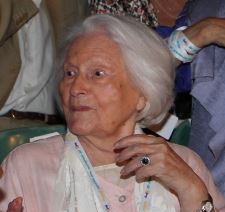
The Suez Crisis or the Second Arab–Israeli War, also referred to as the Tripartite Aggression in the Arab world and as the Sinai War in Israel, was a British–French–Israeli invasion of Egypt in 1956. Israel invaded on 29 October, having done so with the primary objective of re-opening the Straits of Tiran and the Gulf of Aqaba as the recent tightening of the eight-year-long Egyptian blockade further prevented Israeli passage. After issuing a joint ultimatum for a ceasefire, the United Kingdom and France joined the Israelis on 5 November, seeking to depose Egyptian president Gamal Abdel Nasser and regain control of the Suez Canal, which Nasser had earlier nationalised by transferring administrative control from the foreign-owned Suez Canal Company to Egypt's new government-owned Suez Canal Authority. Shortly after the invasion began, the three countries came under heavy political pressure from both the United States and the Soviet Union, as well as from the United Nations, eventually prompting their withdrawal from Egypt. Israel's four-month-long occupation of the Egyptian-occupied Gaza Strip and Egypt's Sinai Peninsula enabled it to attain freedom of navigation through the Straits of Tiran, but the Suez Canal itself was closed from October 1956 to March 1957. The Suez Crisis led to international humiliation for the British and the French in the wake of the Cold War, which established the Americans and the Soviets as the world's superpowers. It also strengthened Nasser's standing.

Golda Meir was an Israeli politician who served as the fourth prime minister of Israel from 1969 to 1974. She was Israel's first and only female head of government and the first female head of government in the Middle East.

The Knesset is the unicameral legislature of Israel. As the supreme state body, the Knesset is sovereign and thus, with the exception of checks and balances from the courts and local governments, has total control over the entirety of the Israeli government.

Snob is a pejorative term for a person who believes there is a correlation between social status and human worth. Snob also refers to a person who feels superiority over those from lower social classes, education levels, or other social areas. The word snobbery came into use for the first time in England during the 1820s.

Richard Allen Boone was an American actor who starred in over 50 films and was notable for his roles in Westerns, including his starring role in the television series Have Gun – Will Travel.

Daliah Lavi was an Israeli actress, singer, and model.

Eddie Constantine was an American singer, actor and entertainer who spent most of his career in France. He became well-known to film audiences for his portrayal of secret agent Lemmy Caution and other, similar pulp heroes in French B-movies of the 1950s and 1960s.

Gal Gadot Varsano is an Israeli actress, model and beauty pageant titleholder. She was crowned Miss Israel 2004 and represented her country at the Miss Universe 2004 pageant. She then served in the Israel Defense Forces for two years as a combat fitness instructor, whereafter she began studying at IDC Herzliya while building her modeling and acting careers.

Nadira, was an Iraki-born Indian actress who worked in the Hindi film industry. She appeared in films from the 1950s and 1960s, including Aan (1952), Shree 420 (1955), Pakeezah (1972), and Julie (1975), which won her the Filmfare Best Supporting Actress Award.
Israel Horovitz was an American playwright, director, actor and co-founder of the Gloucester Stage Company in 1979. He served as artistic director until 2006 and later served on the board, ex officio and as artistic director emeritus until his resignation in November 2017 after The New York Times reported allegations of sexual misconduct.

Annie Laurie is a 1927 American silent romantic drama film directed by John S. Robertson, released by Metro-Goldwyn-Mayer, and starring Lillian Gish and Norman Kerry. It is about the battles of Scottish clans.

Haya Harareet was an Israeli actress and screenwriter. One of her major film roles was playing Esther, Ben Hur's love interest in the 1959 Hollywood-made film Ben-Hur.

Lia van Leer was a pioneer in the field of art film programming and film archiving in Israel. She was the founder of the Haifa Cinematheque, the Jerusalem Cinematheque, the Israel Film Archive and the Jerusalem Film Festival.

The Headwater Diversion Plan was an Arab League plan to divert two of the three sources of the Jordan River, and prevent them from flowing into the Sea of Galilee, in order to thwart Israel's plans to use the water of the Hasbani and Banias in its National Water Carrier project for out-of-Basin irrigation. The plan was approved by the Arab League in 1964 but Israel prevented the project's development by conducting airstrikes in Syrian territory in April 1967.

Night and Fog is a 1956 French documentary short film. Directed by Alain Resnais, it was made ten years after the liberation of Nazi concentration camps. The title is taken from the Nacht und Nebel program of abductions and disappearances decreed by Nazi Germany. The documentary features the abandoned grounds of Auschwitz and Majdanek established in occupied Poland while describing the lives of prisoners in the camps. Night and Fog was made in collaboration with scriptwriter Jean Cayrol, a survivor of the Mauthausen-Gusen concentration camp. The music of the soundtrack was composed by Hanns Eisler.

Reprisal operations were raids carried out by the Israel Defense Forces in the 1950s and 1960s in response to frequent fedayeen attacks during which armed Arab militants infiltrated Israel from Syria, Egypt, and Jordan to carry out attacks on Israeli civilians and soldiers. Most of the reprisal operations followed raids that resulted in Israeli fatalities. The goal of these operations – from the perspective of Israeli officials – was to create deterrence and prevent future attacks. Two other factors behind the raids were restoring public morale and training newly formed army units. A number of these operations involved attacking villages and Palestinian civilians in the West Bank, including the 1953 Qibya massacre.
Events in the year 1955 in Israel.

Moon of Israel is a novel by English writer H. Rider Haggard, first published in 1918 by John Murray. The novel narrates the events of the Biblical Exodus from Egypt told from the perspective of a scribe named Ana.
Man on a Bus is a 1955 American film about settlers in Israel.
















